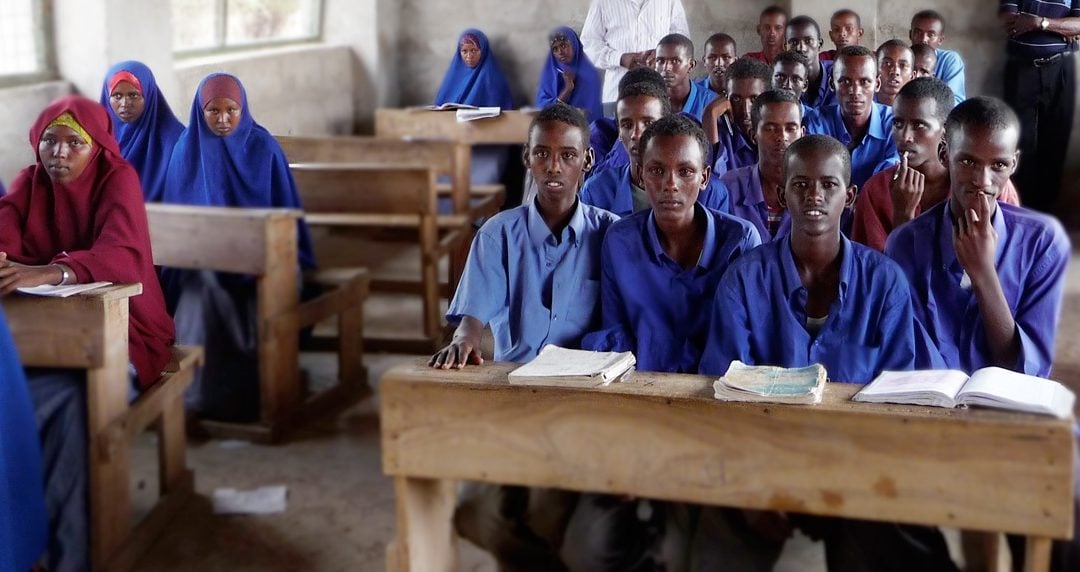“For nowhere in the world has sustained development been attained without a well-functioning system of education, without universal and sound primary education, without an effective higher education sector, without equality of educational opportunity.” – South African President Thabo Mbeki at the Conference on Education for African Renaissance in the Twenty-first Century, Johannesburg, South Africa, 6 December 1999.
As the numbers of forcibly displaced continue to grow and the length of stay as a refugee stretches to 20 years, it is becoming increasingly more difficult to ignore the important role that access to tertiary education plays in emergencies and protracted crises. While the 1951 Refugee Convention does not include explicit reference to provision of education beyond that deemed ‘basic,’ UNHCR’s 2012-2016 Education Strategy holds tertiary education as one of its pillars and the UN Declaration for Human Rights, Article 26 (1), speaks to the need for higher education to be “equally accessible to all on the basis of merit.” This means refugees and non-refugees alike.
There are many reasons why the INEE community should continue to elevate the importance placed on tertiary education in emergencies. But here are 6 we think are key:
1. Bottom-up innovation is becoming more widely recognized as essential in bridging the gap between humanitarian and development approaches. Refugee students in higher education can directly provide humanitarian organizations with important knowledge and insights, and knowledge generated from inside refugee camps, by refugees themselves is crucial to developing sustainable solutions. Community participation is clear in the INEE Foundational Standards. How inclusive is your organisation of “community participation in all stages of education responses”?
2. Education fosters motivation and hope for a better future, which can push refugee learners through more challenging contexts, both inside and outside the classroom. Knowing that there are opportunities for post-secondary studies can lead to higher completion rates and better educational outcomes at primary and secondary school levels. Currently, only 1% of refugees are accessing higher education, yet refugee learners, like their non-refugee counterparts, have enormous potential to contribute positively to the economic development of their host or resettlement country, as well as their country of origin.
3. In the past, teachers have been under-recognised as key educational resources. Quality tertiary teacher training improves the quality of teachers available to teach in both primary and secondary school classrooms, rather than relying on secondary school graduates with limited or no teacher training. Also, developing accreditation-bridging solutions for refugee teachers to teach the host-country curriculum could reduce their frustration and the reliance on sometimes-reluctant host-country teachers. Do you have any examples of how refugee teachers are being supported through training and acknowledged as key resources?
4. Recognised tertiary education assists in realizing the much-articulated view that refugees can be assets to their host countries by providing portable skills that can be applied across many sectors in the host country, particularly if refugees are given the right to work. Where there currently is no right to work, a supply of skilled refugees ready to meet demand in certain sectors could assist in advocating for this right.
5. Education serves a protective function, keeping more youth away from military recruitment or other insecure futures, as well as mitigating the need for traversing dangerous migration routes across North Africa, the Mediterranean, or the Pacific Ocean to seek safety and protection. Lifelong learning opportunities and scholarships, especially at the tertiary level, offers a meaningful and safe alternative with longer-term, ‘durable’ possibilities.
6. Mobilising around tertiary education promotes and models life-long learning. Education responses that develop critical thinking, leadership, and 21st century skills enable refugees to build back better, whether in their host country, country of origin or country of resettlement. Critical thinking skills open an individual’s thinking beyond their current situation. By not only providing technical skills, these skills lay the foundation for young people with commitment to peace building, stronger leadership, and building back better.
What did we miss that you have seen in your own work? Why do you think access to tertiary education for refugees is important? Comment in the discussion below to keep this conversation going.
This article first appeared on http://www.ineesite.org/ on 03 October 2015.
Photo credit: Dr. Rita Irwin
We’re always looking for great stories, ideas, and opinions on innovations that are led by or create impact for refugees. If you have one to share with us send us an email at [email protected]
If you’d like to repost this article on your website, please see our reposting policy.

